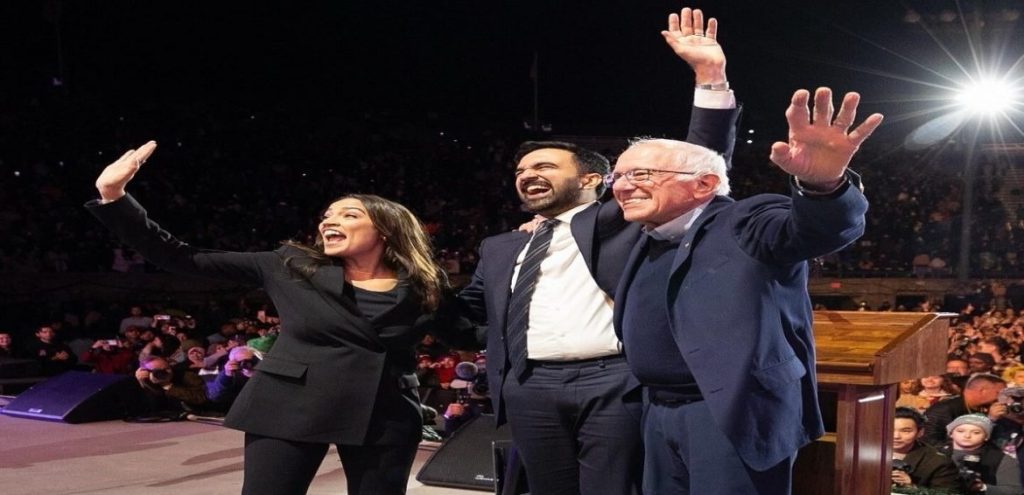In a historic election, Zoran Mamdani, a 34-year-old democratic socialist, was elected as New York City’s 111th mayor, marking a groundbreaking moment as the first person of South Asian descent and the first Muslim to hold this office — as well as the city’s youngest mayor in more than a century.
Mamdani’s victory, fueled by a grassroots movement and a focus on affordability, came after he defeated former governor Andrew Cuomo and Republican Curtis Sliwa. His platform included ambitious progressive policies such as a rent freeze, free public transportation, universal childcare, and city-run grocery stores, signaling the beginning of a new political era in New York.
A New Generation of Leadership in New York
The election of Zoran Mamdani marks the dawn of a new era for New York City. The 34-year-old state assemblyman and democratic socialist achieved a decisive win, becoming the first Muslim and first South Asian to lead America’s largest city. His victory also makes him the youngest person to hold the office in over a hundred years, symbolizing a generational shift in the city’s political landscape.
Mamdani’s campaign resonated deeply with voters — especially younger generations who turned out in record numbers. He won slightly more than 50% of the vote in a highly competitive race, defeating former governor Andrew Cuomo, who ran as an independent after losing the Democratic primary, and Republican Curtis Sliwa.
A Leftward Shift in New York Politics
The results highlight a significant leftward shift within the Democratic Party and sparked widespread debate among New York’s political elite. With endorsements from Alexandria Ocasio-Cortez and Bernie Sanders, Mamdani’s administration is expected to turn New York into a testing ground for progressive policies.
His main proposals include:
-
Implementing a rent freeze for stabilized housing units
-
Improving public transit with free and faster bus services
-
Providing universal childcare
-
Establishing city-owned grocery stores to combat food insecurity
A Message of Change and Unity
In his victory speech at Brooklyn Paramount Theater, Mamdani framed his win as a “clear mandate for change” and a symbol of New York’s renewal.
He thanked “the next generation of New Yorkers who refuse to accept that the promise of a better future belongs to the past,” emphasizing an era of leadership that listens to the people.
Voter turnout surpassed all previous mayoral elections since 1969, with over 2 million ballots cast, more than doubling the 1.1 million votes from 2021.
Challenges and Opposition
The road to victory was not without challenges. Mamdani faced a contentious and sometimes chaotic race, including a bitter primary battle against Cuomo. After losing the primary, Cuomo ran independently in the general election, hoping for a political comeback following his resignation over a sexual harassment scandal. Yet voters rejected his bid — Cuomo received 42% of the vote, compared to 7% for Sliwa.
Mamdani also faced personal attacks and Islamophobic rhetoric during the campaign. His opponents circulated AI-generated videos and false accusations. He also navigated divisions within the city’s Jewish community over his stance on Israel, breaking from traditional mayoral positions.
A Progressive Agenda Ahead
Looking forward, the main challenge for Mamdani’s administration will be funding his ambitious policies. His proposal to raise taxes on the top 1% of earners and corporations faces resistance from Governor Kathy Hochul, who has long opposed such tax hikes — despite endorsing Mamdani. Nevertheless, Hochul expressed willingness to collaborate to make New York “more affordable and livable.”
In other citywide races, Public Advocate Jumaane Williams and Comptroller Mark Levine were re-elected. Mamdani and the newly elected officials will take office on January 1, promising a new beginning for New York. Outgoing mayor Eric Adams pledged full support for a smooth transition, saying:“This is our democracy, and together we’ll ensure New York remains a city where every voice is heard.”

